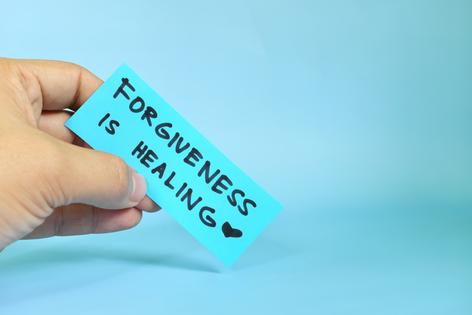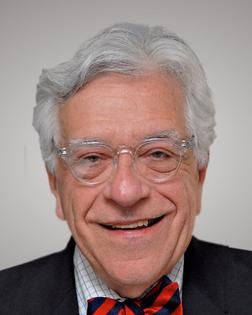The God Squad: Is there a limit to forgiveness?
Q: I grew up with a mother with undiagnosed mental illness. In 'those days' there really was little understanding or avenue for help. My mother was emotionally and physically abusive, including one time attempting to kill me by suffocation. I've worked hard over the years to forgive my mother; it is an important part of my faith. I've attended retreats and workshops on forgiveness and one of the most helpful things I heard was: 'If you can't bring yourself to forgive, pray for the willingness to forgive, pray for God to help the person you have been hurt by". That has brought me far in my journey.
My mother is deceased. Through education, prayer, re-evaluation, I have come to understand my mother was raised by an abusive mom herself, she had mental illness that she couldn’t' recognize or get help for, and that there was a piece of her that wanted to be a good mom to me and my sibs, and that even though at times life was very hard for us, my mom 'sort of', did the best she could. My question to you is, 'is that good enough?" Does understanding how my mother was formed/failed by her own family and society, and giving grace that 'her life was never easy', suffice in the eyes/commands of God? Really, I have built a good life and function at a high level in the world. In some ways, my surviving and thriving feel like sort of a gift to my mom, in that her own trauma and mental health struggles did not literally or spiritually/emotionally 'kill me'. But I can't bring myself to say, "I forgive her".
I feel sad that I never felt safe in my own home, I feel an aching when people talk about 'mother's love', I miss not feeling cherished, cuddled, valued by her. I'm resentful that she never once said "I'm sorry", or "I didn't mean it" when she saw the bruises on her kids. It was ignored as if it never happened.
The best I can say is that I've come to accept how the situation was. I don't hate her, but I don't love her either. We did battle on many issues over the years, but still existed, celebrated, etc. 'as a family'. When she died, I was relieved I wouldn't have to be in a relationship with her anymore. I was never loving or caring to her, but perhaps dutiful. The fact that I am even writing to you tells me I fear/feel I am not doing what God commands. Any helpful suggestions on your part, if you are able, would be appreciated. Thanks for listening. – (From L)
A: Oh, my dear suffering L, what I most want to tell you after reading your brave and honest cri de’coeur (passionate appeal) is that your resilient and compassionate heart has led you to do precisely what the Lord our God has commanded us. In the Ten Commandments the fourth commandment (for Lutherans, and Catholics) and the fifth commandment for Judaism, Reformed Christianity and the Septuagint) is, “Honor your father and mother.” The commandment does not command us to love our parents or even to obey them, and you know why. Honor, however, is a right of parenting for one clear and obvious reason. They gave us our life, and we are indebted to them for that ultimate gift. How we express that honor is one of the great tasks in our life’s formation.
You have honored your abusive mother by coming to a clear understanding that her violence toward you was not your fault or failure. It was the result of her mental illness. You honored her by understanding her. I would suggest to you that such an understanding is actually a form of forgiveness. I don’t know where the wrongheaded idea came from that forgiveness is an act of excusing moral failing. Forgiveness does not require that we say everything you did is just fine and of no account. Every sin leaves its mark and forgiveness is our act of understanding something, not ignoring it.
When I teach forgiveness to children, I have them pound a bunch of nails into a board. Then I tell them that every time they hurt somebody it is like pounding a nail into a board. Then I tell the kids to pull out the nails and I explain that pulling out the nails is what happens when the person you hurt forgives you. One day a child said to me, “But Rabbi Gellman, there are still holes in the board.” I said, “Yes, we cannot remove the holes. We cannot erase the bad things we do, but we can learn to live with the holes because all of us have holes.
You have learned to live with your holes and that is a remote human achievement.
(Send ALL QUESTIONS AND COMMENTS to The God Squad via email at godsquadquestion@aol.com. Rabbi Gellman is the author of several books, including “Religion for Dummies,” co-written with Fr. Tom Hartman. Also, the new God Squad podcast is now available.)
©2025 The God Squad. Distributed by Tribune Content Agency, LLC.
(c) 2025 THE GOD SQUAD DISTRIBUTED BY TRIBUNE MEDIA SERVICES, INC.












Comments